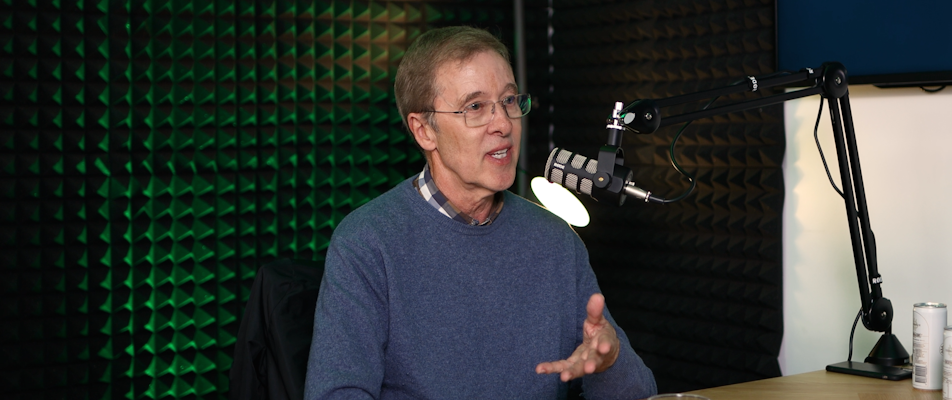

Alan Dupont, a former army officer, intelligence analyst, freelance journalist, diplomat, academic and well-known commentator on defence and national security issues, says we are due for change and the change is only just beginning amidst a polycrisis.
Polycrisis as defined by Alan, is the recognition of multiple ‘big system’ shaking events that are inevitable key macroeconomic risks facing businesses that inherently influence investment decisions.
Alan joined CEO of the South Australian Business Chamber Andrew Kay on the ThirtyNiners Podcast, to discuss the current ploycrisis, and how developing a greater understanding of current and past geopolitical issues, can prepare South Australian businesses for incoming change, and the innovation required to evolve business strategies within this change.
“There’s so much disruption and people have a lot of difficulty joining up the dots and understanding actually what the problem is or problems. So that’s why I call this the era of the polycrisis; multiple cascading crises all happening at once, and to a large degree interconnected.
“But from a historian’s point of view, people generally thought, well, we’re in for a good period now, the pandemic is behind us, but in actual fact, it’s actually the beginning of another phase in history”.
There is a clear correlation between ‘systems’ rising and falling since the beginning of time, and Alan want’s to be clear and realistic with businesses owners that history tells us we are entering a new phase of geopolitical systems.
“Countries like people, systems and empires, become strong and then they fade, and they’re replaced by others, and that’s exactly what’s happening here, systems fragmenting and a new one arising, you get a lot of change disturbances, perturbations that last for long periods of time. I’m not talking about one year or two. I’m talking 10, 20, 30 years before the new system establishes itself.
“So, there is no going back to the world pre-COVID. That’s one of the big messages I give my clients. You better get used to this because this is the new normal. Lots of disruption, lots of change, and it’s happening very rapidly”.
Traditionally, business owners look to Government to assist them in understanding how geopolitical issues will affect the way in which business is done, but if Alan can provide one piece of advice, it would be for business owners to educate themselves on the current systemic change, and start developing strategies to consolidate the longevity of their business.
“It is great for businesses to have a broad understanding of strategic trends and technology trends, but then you need to go to the next level of analysis and say; of those let’s say 25 areas of change, these three are the ones that matter to me, so I’m going to become quite an expert on those three areas, and then revisit this in 12- or 18-months’ time to continue to develop my understanding.
“The rate of change is accelerating, and it can be overwhelming. Therefore, all the more reason to have plans and to be strategic in your approach and to be flexible and be able to adapt. Everyone in business talks about agility all the time, but if you are bureaucratic and slow in your decision-making process on these issues, it’s not going to cut it anymore.
To hear the remainder of this incredibly insightful conversation with Alan Dupont and Andrew Kay, search for the ThirtyNiners Podcast by the South Australian Business Chamber wherever you hear your podcasts.
